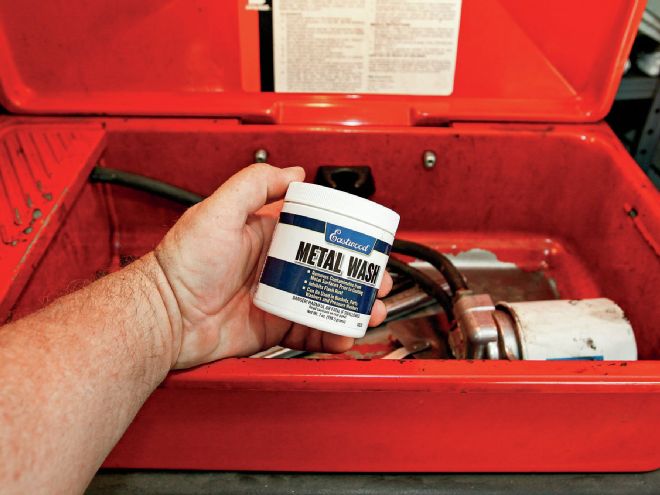
Using water to prevent rust from occurring on freshly exposed bare metal sounds counter intuitive, to say the least, but we’re living in an age where water-based formulations are replacing petrochemical solvents at an ever increasing rate. A prime example is The Eastwood Company Metal Wash, a powdered concentrate that is mixed with warm water and applied to fresh bare metal before the first signs of flash rust are allowed to appear.
The benefits of using Eastwood Metal Wash are bi-fold. The first being waterborne brings monetary expense way down in comparison to solvent-based; and two, contamination from oily compounds doesn’t exist.
Bear in mind Eastwood Metal Wash is not intended to be a long-term solution for protecting bare metal. Shortly after using Metal Wash a DTM (direct-to-metal), primer, or powdercoating should be applied to seal the metal permanently.
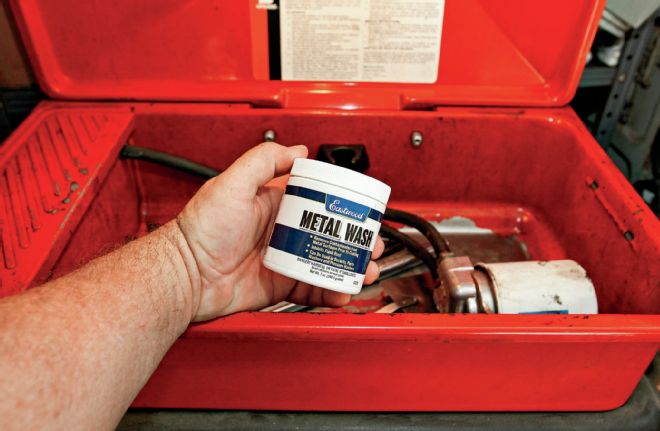
Eastwood recommends to dip, spray, or brush Metal Wash for use in buckets, spray bottles, gunk tanks, or pressure washers.
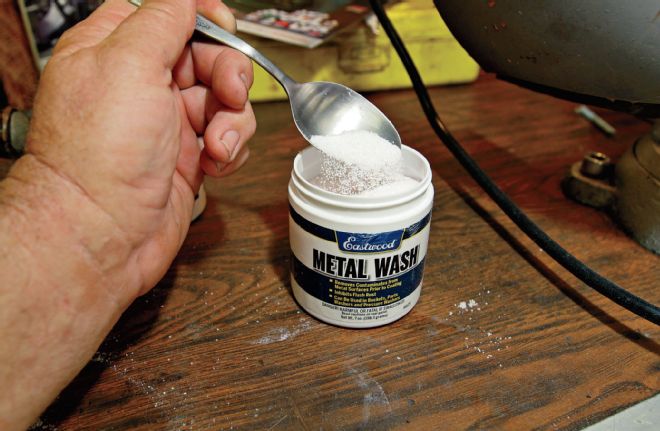
Eastwood instructs to thoroughly mix Metal Wash in warm water at a ratio of five level teaspoons to 1 quart.
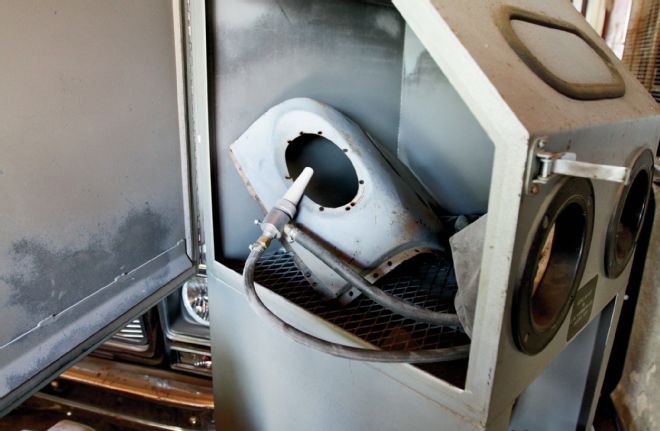
Media blasting can leave (trap) large amounts of abrasive matter (shot) in blind holes that should be blown out with compressed air or flushed with Metal Wash.
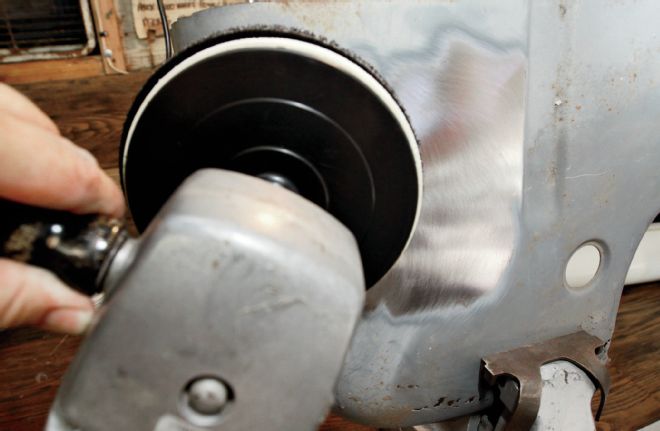
An Eastwood PN 31114 7-inch cleaning/stripping disc is a great alternative to media blasting or works great to remove prior flash rust from metal parts.
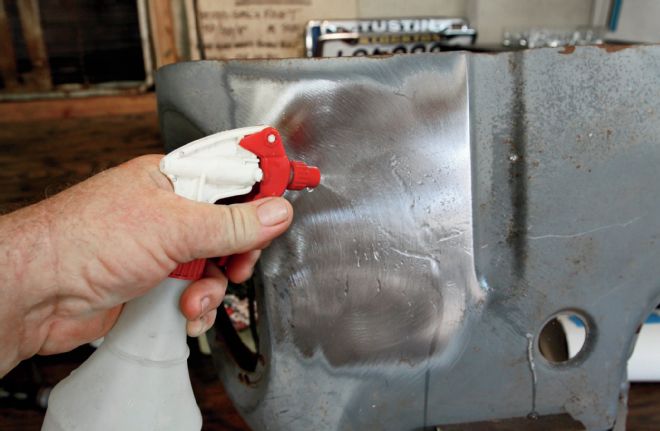
From that point I sprayed Metal Wash on warm with a generic squirt bottle soaking the entire area.
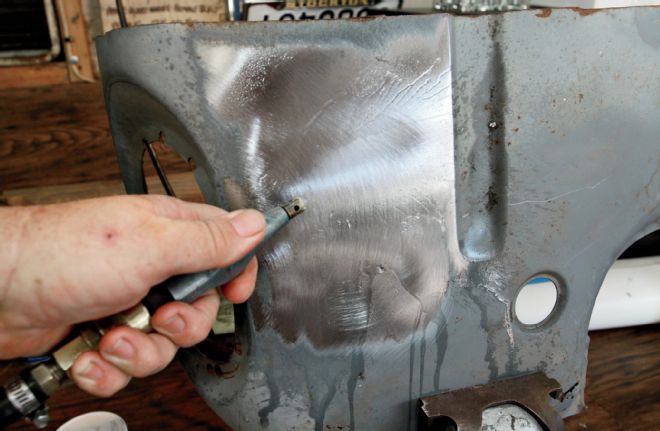
Followed by compressed air to dry the bare metal-or Metal Wash can be left to air dry.
Eastwood Tech Tip:
Store air hoses in large coils, especially natural rubber lines. They are less prone to that annoying "kink" that makes them a problem when painting or using an impact and pulling the hose around the shop.